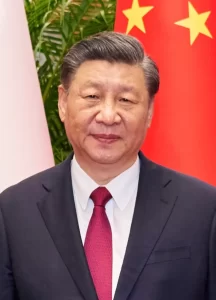by Tony Wikrent
The (anti)Federalist Society assault on the Constitution
[TW: There were a number of articles and videos in which people complained that “this Supreme Court is out of control.” I do not think such framing is useful. The conservative majority on the Supreme Court is very much in control of itself, and is carefully and deliberately implementing the hostile philosophy of government propounded by conservative, anti-republican theorists ever since Thomas Paine clashed with Edmund Burke, after Paine met Burke, and realized Burke may have been sympathetic to the American revolt against corrupt King, Parliament, and ministries, but was actually implacably hostile to the philosophy of self government of civic republicanism.
[Almost all of USA political history includes the background of this clash between the republicanism of Paine and the conservativism of Burke. Conservatism is simply philosophically hostile to the American experiment in republican self government. It is why conservatives argue that the Preamble of the Constitution is a meaningless flourish; that the General Welfare mandate and clause are dangerous mistakes that enable an overpowering “administrative state” and that the powers bestowed by the Constitution on the government are “strictly enumerated” and limited, not broad grants of legitimate power to solve problems not foreseen by the “founding fathers.” The Heritage collaboration with the Center for Renewing America and over 80 other right-wing groups to dismantle the “administrative state” by sharply curtailing government capacity while at the same time misusing executive power to punish political enemies — the infamous Project 2025 plan — is merely the latest development in this centuries-old struggle between conservativism and republicanism.
[There are no Democratic Party leaders I know of — with the notable exception of Representative Raskin (see below) — who discuss these issues of a philosophy for governing. In that sense, all the screaming, hollering, and agonizing over Biden’s awful debate performance is largely meaningless: there is no one in the leadership of the Democratic Party who is even attuned to the conservative / (anti)Republican assault on our government. ]
‘Gift to Corporate Greed’: Dire Warnings as Supreme Court Scraps Chevron Doctrine
Jake Johnson, June 28, 2024 [CommonDreams]
The high court’s 6-3 ruling along ideological lines in Loper Bright Enterprises v. Raimondo and Relentless, Inc. v. Department of Commerce significantly constrains the regulatory authority of federal agencies tasked with crafting rules on a range of critical matters, from worker protection to the climate to drug safety.
The majority’s decision was written by Chief Justice John Roberts.
“The weight of human suffering likely to arise from this decision should keep the justices up at night,” said Emily Peterson-Cassin of Demand Progress, a watchdog group that called the decision “a gift to corporate greed.”
“The Supreme Court is threatening safeguards that protect hundreds of millions of people from unsafe products, bad medicines, dangerous chemicals, illegal scams, and more,” Peterson-Cassin added. “By handing policy decisions usually deliberated over by experts to lower level judges, the Supreme Court has set off a seismic political shift that primarily serves only the most powerful corporate interests.”

 I was a doubter about Xi. His early anti-corruption drive seemed most likely to be a way to purge the Party of his enemies, and I assumed he was driven primarily by ambition for personal power.
I was a doubter about Xi. His early anti-corruption drive seemed most likely to be a way to purge the Party of his enemies, and I assumed he was driven primarily by ambition for personal power.